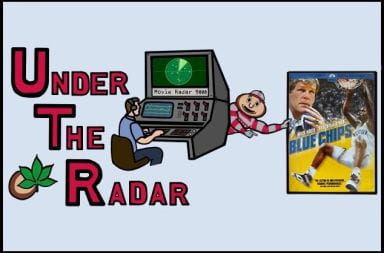
Then-NBA Commissioner David Stern talks with a fan before Game 7 of the NBA Finals between the Miami Heat and San Antonio Spurs June 20 at the AmericanAirlines Arena. Miami won, 95-88.
Courtesy of MCT
For the first time in 30 years, the NBA is set to have a new commissioner at the helm.
David Stern retired Saturday, and his successor, Adam Silver, took over the same day.
Stern’s legacy, like many others who sit on the throne of professional sports, will forever be debated as to whether or not he was successful in his time as commissioner. For me, there is no question that Stern was the most successful commissioner we have seen in our time.
When Stern took over Feb. 1, 1984, he inherited a league that contained just 23 teams, and the average player salary was $250,000 according to The New York Times. In Stern’s 30 years as commissioner, seven franchises have been added to the NBA and the average player salary is upwards of $5 million.
Stern was also very lucky as he was able to introduce NBA greats such as Michael Jordan, Karl Malone, Kobe Bryant and of course LeBron James.
But what will Stern’s legacy ultimately be?
For all that he did for the league, he like any man, had his shortcomings.
During his 30 years at the top of the NBA, the league endured four separate lockouts, two of which resulted in shortened seasons and lost revenue.
Stern also brought controversy on himself when appearing on sports talk show host Jim Rome’s radio show in June 2012. When Rome asked if the 2012 NBA Draft had been “rigged,” Stern responded with “Have you stopped beating your wife yet?”
Clearly not the way a leader of men should conduct himself.
There was also the more recent Chris Paul trade fiasco that occurred in 2011 when Stern vetoed a highly popular trade that would have sent the All-Star guard from the New Orleans Hornets (who are owned by the NBA) to the Los Angeles Lakers, much to the disdain of NBA fans.
Despite his downfalls, Stern was able to globalize the NBA. When he took over in 1984, NBA games were televised in just two countries (U.S., Spain). Now, NBA games can be viewed on television in more than 200 countries and territories.
Compared to other commissioners across the country, Stern has been a breath of fresh air for the professional sports community.
Major League Baseball commissioner Bud Selig will forever be known as the commissioner who dealt with the “Steroid Era” and in my opinion did a very poor job doing so, as players like Barry Bonds and Roger Clemens provided fans with so many tainted memories.
Of course there is everyone’s favorite commissioner to criticize, National Football League commissioner Roger Goodell who, since taking over for Paul Tagliabue in 2006, has been a mainstay of harsh words by fans and controversy since day one.
After all of that, we have Stern, who aside from a radio outburst and a few lockouts (which every professional sports league endures), has been a refreshing reminder of what professional sports in this great country of ours can be.


